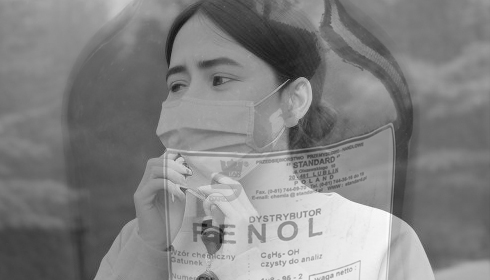
Study Links Prenatal Exposure to Everyday Chemicals with Asthma Risk in Children
A groundbreaking research study conducted by Kumamoto University found a substantial correlation between maternal exposure to certain everyday pollutants during pregnancy and the development of asthma in offspring. The study, part of the Japan Environment and Children's Study (JECS), examined data from over 3,500 mother-child pairs, providing important insights into how common chemical exposures may affect respiratory health in early infancy.
The study focused on 24 phenols, which are compounds widely found in personal care items, cleaning agents, and plastics, and measured their quantities in urine samples collected during the first trimester of pregnancy.
Using logistic regression analysis, the researchers discovered substantial associations between exposure to certain phenols and asthma in children.
One significant finding was a link between butylparaben, a preservative prevalent in shampoos and lotions, and asthma risk. Mothers with high levels of this substance exposure during early pregnancy were 1.54 times more likely to have children with asthma. This demonstrates how even regular exposure to commonly used personal care items can have long-term health consequences for children.
Another noteworthy finding concerned 4-nonylphenol, a substance present in cleaning goods and plastics. The study found a surprising gender-specific effect: boys exposed to high quantities of this chemical in utero had a 2.09-fold higher risk of having asthma, but girls had no such association. This gender imbalance implies that biological or hormonal differences between boys and girls may influence how their growing systems react to specific chemical exposures.
These findings highlight the need for more research into how common pollutants can disrupt fetal development and contribute to respiratory and allergy disorders, especially during sensitive periods, such as pregnancy.
Consumer products value phenols like parabens and alkylphenols for their antibacterial and preservation properties. While their use is widely considered harmless at tiny levels, growing concerns about their role as endocrine disruptors have brought attention to their potential long-term health consequences. These include an increase in allergic disorders like asthma, especially during sensitive developmental periods like pregnancy.
Grace Loke, a PhD student, clarified stating, "These findings show how maternal exposure to certain phenols during critical stages of pregnancy can have lasting effects on children's respiratory health." Dr. Shohei Kuraoka, the lead researcher, emphasised the significance of the findings for public health policy.
"These findings emphasise the importance of carefully assessing chemical exposure during pregnancy. Understanding these hazards enables us to create more effective guidelines to protect mother and child health," he said.
While the study gives useful information, it has drawbacks, such as not assessing phenol quantities in children directly. Future studies will need to investigate these pathways further and define safe exposure thresholds.
The findings underscore the critical need for updated safety guidelines for prenatal exposure to common chemicals.
Reducing pregnant women's exposure to parabens and alkylphenols may be an important step toward protecting their children's long-term health.
Pointing out that the study highlights the vital relevance of understanding how common chemicals interact with human biology, especially during delicate periods such as pregnancy, Dr. Kuraoka concluded that minor lifestyle changes made today could have significant implications for the health of future generations.